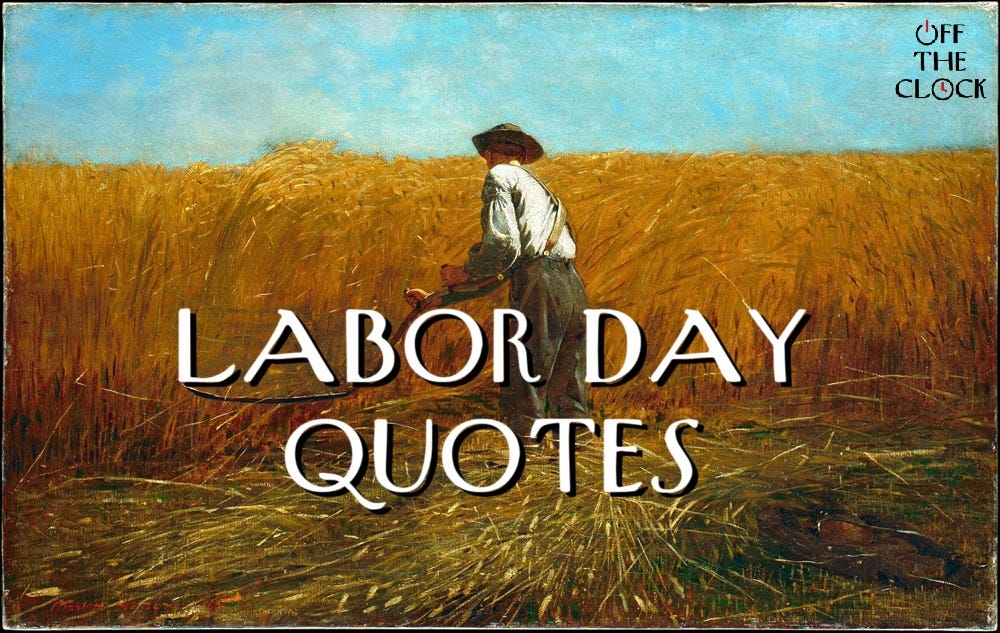Welcome to “Off the Clock,” a little something that lands somewhere between Timeless & Timely.
I send out this fun look at language and words every other Saturday as bonus content. If someone sent this to you, please consider subscribing.

Usually, this is where we dig into words and their history. Rather than the usual etymological discourse, the recent Labor Day weekend afforded us a chance to reflect on its origins, peppered with observations and utterances about the nature of work.
The first Labor Day was marked in New York City in 1882, with a parade of some 15,000 marchers. The goal was to indicate the importance of workers in the Industrial Age.
The Industrial Age has given way to the Information Age, but the outputs of physical labor still happen with manufacturing and manual labor: our phones, our houses, and our transportation, despite encroaching automation, still require human hands to touch them, somewhere in the chain.
And those hands, tethered to an assembly line or a keyboard, serve a purpose, whether our own or someone else’s.
This is a fundamental drive of human existence: to live for a purpose.
In order to give a little purpose to Labor Day, I have assembled appropriate quotes for the occasion.
“The gulf between employers and the employed is constantly widening, and classes are rapidly forming, one comprising the very rich and powerful, while in another are found the toiling poor…. Corporations, which should be the carefully restrained creatures of the law and the servants of the people, are fast becoming the people’s masters.”
— Grover Cleveland, 1888
“I never remember feeling tired by work, though idleness exhausts me completely.”
— Arthur Conan Doyle, 1890
“No race can prosper till it learns that there is as much dignity in tilling a field as in writing a poem.”
— Booker T. Washington, 1895





